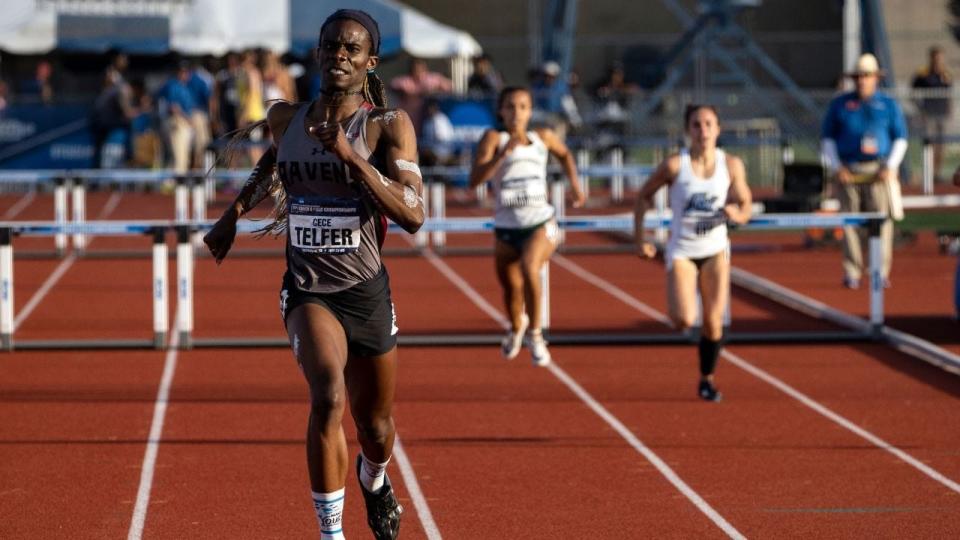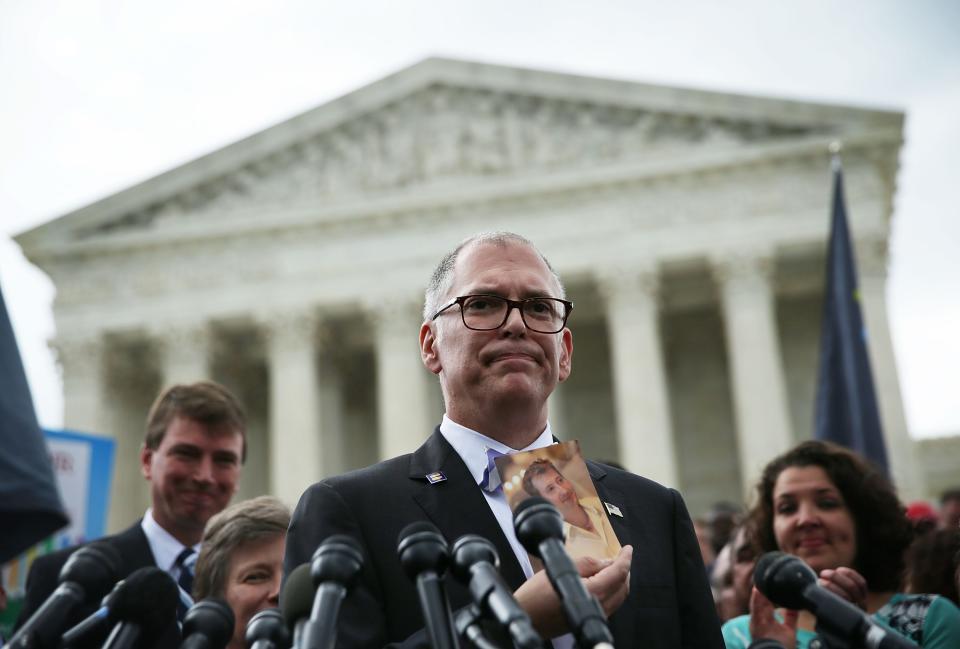Americans less supportive of transgender athletes playing for teams of their choice, poll finds
Americans are less supportive of transgender athlete participation in single-gender sports than they were two years ago, a national survey has found, even as more people say they know someone who is transgender.
The findings, gleaned from Gallup’s annual Values and Beliefs poll, suggest Americans see the issue more as one of competitive fairness than of transgender civil rights, said Jeff Jones, a senior editor for the public opinion polling firm.
Support fell for transgender athletes being able to play for teams aligned with their gender identity even among those who said they knew a transgender person, Jones said.
“That’s a surprising finding,” he said. “It definitely looks like most people see it as a fairness issue. Even Democrats are divided, and we see that independents, who are generally supportive of LGBTQ policies, are also opposed overall.”
The effects of anti-trans rhetoric
Gallup’s telephone survey of 1,011 U.S. adults was conducted last month. It found that 69% of Americans say transgender athletes should be restricted to sports teams that conform with their birth gender, compared to 62% in 2021.
Likewise, the findings showed that just 26% of Americans support transgender athletes playing for teams matching their gender identity, compared to 34% two years ago.

Z Nicolazzo, an associate professor of trans studies in education at the University of Arizona, said the results show that fearmongering rhetoric accompanying the rapid rise in anti-trans legislation is having an effect.
“It’s resonating with people regardless of what the scientific evidence demonstrates,” she said.
But equally damaging, Nicolazzo said, is that Democrats and progressives are not creating “a pro-trans narrative.”
“They have not clearly come out and said we believe in science, and we believe that trans women are women and trans girls are girls,” she said. “Their silence is only aiding and abetting this doubling-down from the conservative movement.”
Issue looms as a major 2024 battleground
More than 1.6 million Americans identify as transgender, and about 1 in 5 is under 18 years old.
Republicans have seized on transgender rights as a major issue as the 2024 elections approach. More than 200 of the more than 500 anti-LGBTQ bills introduced in state legislatures this year target transgender and nonbinary people, according to Human Rights Campaign, and about 40 of them would ban transgender students from playing school sports despite little evidence showing their participation posits an unfair advantage.

In April, the U.S. House of Representatives passed the Protecting Women and Girls in Sports Act, which not only prohibits transgender women athletes from playing on women’s sports teams but would withhold funding from schools violating the rule. The proposal is unlikely to pass in the Senate.
Support for transgender athletes' ability to choose to play for a team matching their gender identity fell among the three major political groups, with Republicans solidly opposed (93%) and independents largely opposed (67%). Democrats were divided on the issue, with 48% in disfavor and 47% in support.
Support for transgender athletes falls across the board
Gallup's poll found that more people say they know someone who is transgender compared to two years ago: 39% of Americans reported that someone they knew personally told them they were transgender, up from 31% in 2021.
Nevertheless, support for transgender athletes playing on teams aligned with their gender identity has fallen both among Americans who know and who do know transgender people, the poll found.
Only 30% of people who said they knew a transgender person said they were in favor, down from 40% in 2021. Among those who did not know a transgender person, support fell from 31% in 2021 to 23% this year.

Young adults were one of the few subgroups to see support rise for transgender athletes being able to choose their sports team, climbing to 41% from 35% in 2021.
The survey also polled Americans in general about being transgender, finding that 55% considered changing one’s gender to be morally wrong, compared to 43% who said it was morally acceptable. The results illustrated slightly less acceptance than in 2021 when 51% said it was morally wrong and 46% said it was morally acceptable.
The drop occurred largely among Republicans and those who said they did not know a transgender person, with each group down seven percentage points since 2021. Those who considered changing one’s gender to be morally acceptable were mostly 18- to 29-year-olds (60%); just under a third of Americans 50 and older (32%) said it was acceptable.
In young adults, seeing both hope and uncertainty
Jones said that with younger Americans more likely to know a transgender person and to support transgender sports participation than their older counterparts, signs point toward increasingly accepting views in the future.
“In the last two decades we’ve seen a pretty significant shift in attitudes toward LGBTQ issues, and we’re almost at the point now where we were in the 1990s on same-sex marriage,” he said. “It took about 20 years for people to be comfortable with it.”

However, if people continue to view the issue as one of competitive fairness, Jones said Americans may remain wary.
Nicolazzo, of the University of Arizona, said an increase in trans acceptance as younger people age to comprise more of the American mainstream was “the hope and the goal.”
At the same time, she said that isn't an outcome the Left can bank on without effort.
"If they don’t publicly support LGBTQ+ people and publicly rebuke conservative rhetoric that is anti-trans, Democrats are going to have a big problem," Nicolazzo said. "Not only because they’re going to lose a voting demographic, but because they’re putting a highly marginalized population at greater risk.”
This article originally appeared on USA TODAY: Trans athletes: US support for allowing team choice falls, poll finds

